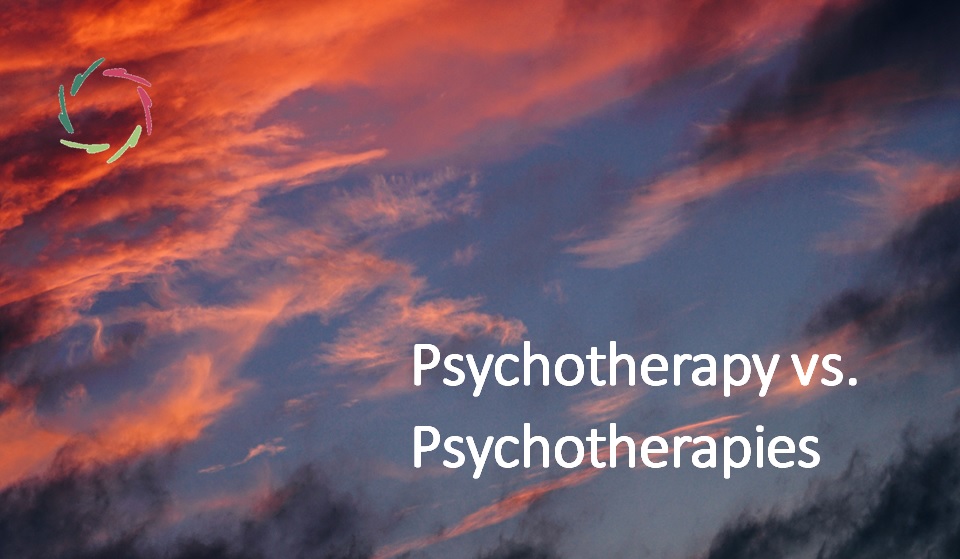What Goes on with CBT?

A high-level scientific article of 2023 again shows small to very small effects sizes of Cognitive Behavioral Therapy (CBT) on anxiety and depression when compared with a pharmacological or psychological placebo. [*]
This blog contains a number of excerpts from that article. The article itself is openly available on https://rdcu.be/dNlpj. Also, you will find the reference below. Note that the term ‘significantly’ is used in this article in the statistical sense. The overall conclusion shows the effect to be small to minimal, and smaller even than in prior studies (better research?). So, what goes on with CBT?
From the abstract
Effective treatment of anxiety-related disorders is crucial, considering the prevalence of such disorders and their association with poor psychosocial functioning. To evaluate the most recent evidence on the efficacy of cognitive behavioral therapy (CBT) for anxiety-related disorders in adults, we conducted a meta-analysis of randomized placebo-controlled trials published since 2017.
Ten studies with a total of 1250 participants met the inclusion criteria. Seven of these studies examined PTSD. The findings demonstrated small placebo-controlled effects of CBT on target disorder symptoms and depression.
Effect sizes from placebo-controlled trials from the past 5 years appear to be smaller than those in prior meta-analyses.
From the introduction
A recent report from the Global Burden of Disease Study estimates that more than 301 million people globally are affected by anxiety. A global return on investment analysis report indicates that approximately 12 billion workdays per year are lost due to anxiety and depressive disorders.
The most extensively researched and tested psychotherapy is cognitive–behavioral therapy (CBT). CBT is considered the gold standard evidence-based intervention for treating anxiety disorders
From the rest of the article
This paper was designed as a meta-analysis focusing on recent randomized controlled clinical trials (RCTs) comparing primary outcomes of CBT for anxiety-related disorders in adults with placebo control conditions (psychological or pill).
The overall effect of CBT compared to placebo control across all studies at posttreatment was small, but significant. We found that the effects of CBT for anxiety-related disorders were very small and not significant at the 6-month follow-up.
The effects of these interventions on depression were very small and non-significant.
The pooled placebo-controlled effect size for PTSD studies was statistically significant but small, and notably smaller than the results reported in Carpenter et al. [published in 2018]. This pattern of results does not support the notion that CBT is substantially more effective at reducing PTSD symptoms than therapy modalities designed to account for nonspecific factors of psychotherapy, at least when examining literature published since 2017.
We did not find any significant advantage of CBT over placebo on depression symptoms, either amongst PTSD studies or across all anxiety-related disorders, supporting the specificity of the interventions. The minimal advantage of CBT over psychological placebo treatments for PTSD is somewhat surprising given that trauma-focused CBTs are recommended as front-line treatments in numerous treatment guidelines.
The present results are in line with a meta-analysis by Belsher et al., which found that PCT, considered a placebo control in the current analysis, is non-inferior compared to trauma-focused CBT. Thus, there efficacy of CBT for PTSD. Another important finding was related to patient dropout. Participants receiving CBT for anxiety and PTSD showed a significantly higher chance of dropping out from the study than those receiving the psychological placebo… A potential explanation could be that patients receiving the intervention, such as exposure-based treatment, are required to revisit the traumatic memory, which could confer the risk of early dropout.
From the conclusion
Randomized controlled trials published in the last 5 years show relatively minimal advantage in CBT over psychological placebos in the treatment of PTSD, though this effect may depend on the specific comparison condition. The stagnation (and even deterioration) of effect sizes over the years is an issue that is worth exploring further.
My conclusion
CBT has been shown to have a relatively minimal advantage over psychological placebos in treating anxiety and depression. Moreover, this is in line with other psychotherapeutic conceptual methodologies. This suggests a need for a synthesis of rationality and depth rather than relying solely on conceptual approaches. So, what goes on with this domain, and what must be done?
What we can do from the AURELIS perspective:
- Openness to depth: CBT focuses heavily on conscious, rational processes but might benefit from incorporating a deeper understanding of the subconscious mind. AURELIS promotes a synthesis of rationality and depth, suggesting that both conceptual and subconceptual (non-conscious) processes are crucial for effective mental health treatment.
- Inner strength: Change should come from within, guided by the individual’s inner strength and deeper self rather than being imposed externally. This aligns with the AURELIS principle that change should be invited and supported from the inside out.
- Compassionate approach: Incorporating a more compassionate approach that respects the whole person can potentially lead to more durable and ethical mental health solutions.
―
Reference
[*] Bhattacharya, S., Goicoechea, C., Heshmati, S. et al. Efficacy of Cognitive Behavioral Therapy for Anxiety-Related Disorders: A Meta-Analysis of Recent Literature. Curr Psychiatry Rep 25, 19–30 (2023). https://doi.org/10.1007/s11920-022-01402-8


